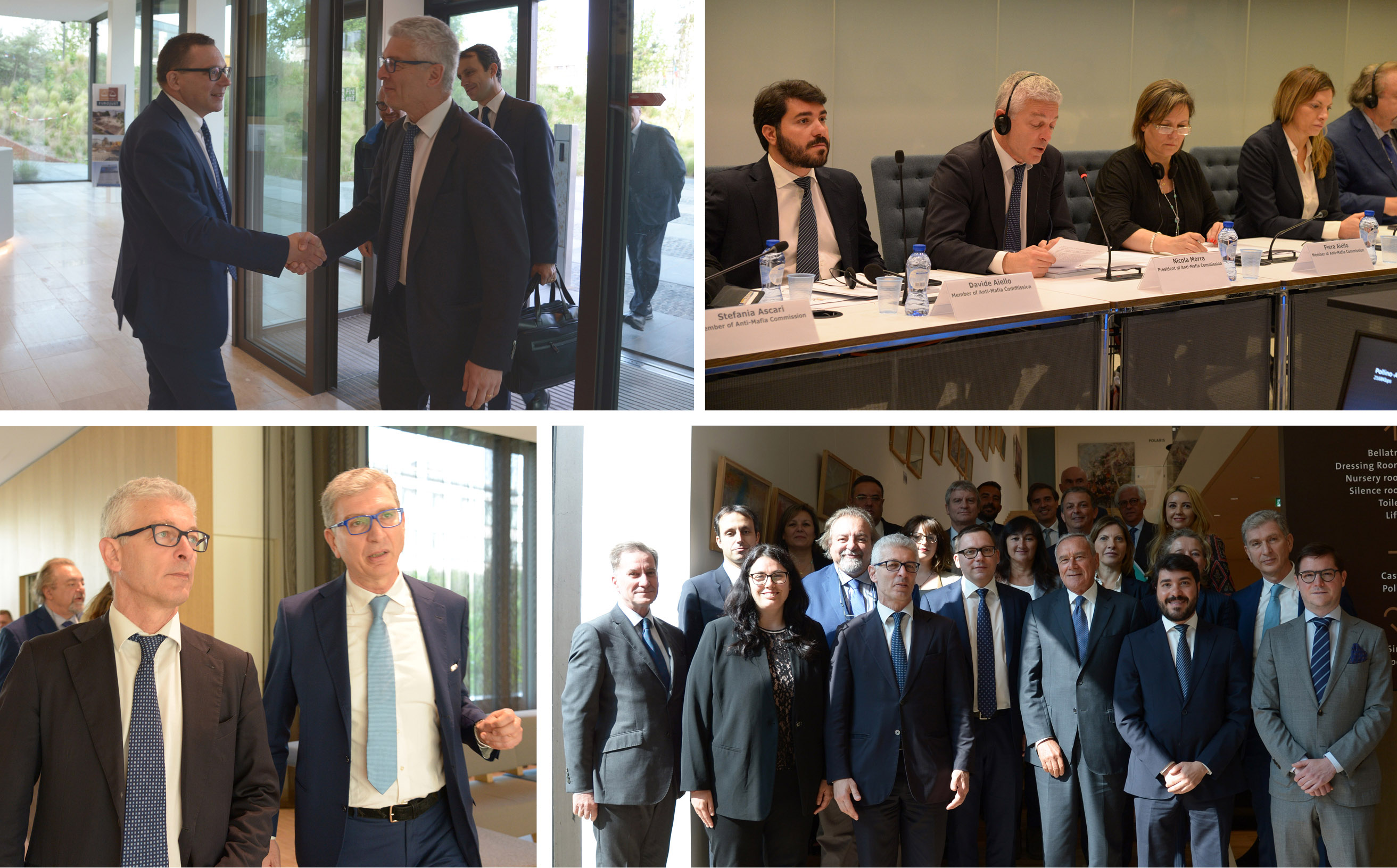Anti-Mafia Commission of the Italian Parliament at Eurojust
A high-ranking delegation of the Italian Parliamentary Anti-Mafia Commission met today with the President and Vice-President of Eurojust to reinforce the strategic cooperation in the fight against mafia groups and transnational organised crime. The high-level meeting focused on expanding the current synergies between the Anti-Mafia Commission and Eurojust, as a key partner in combatting cross-border criminality in Europe and beyond. The two parties explored possibilities of stronger mutual support to better accomplish their mission and bring more offenders behind bars.
Mr Nicola Morra, President of the Italian Parliamentary Anti-Mafia Commission, said: 'The Anti-Mafia Commission is honoured to meet the President and Vice-President of Eurojust, which undoubtedly is the most important international body for a direct and systematic dialogue and exchange of evidence between the Member States' judicial authorities. Eurojust supported over 200 joint investigation teams in 2018, which are an indispensable judicial tool, also for the Anti-Mafia Commission's investigative activities. Today's meeting will help to identify which aspects of national legislation can be improved to strengthen transnational cooperation and, therefore, the protection of European values.'
Mr Ladislav Hamran, Eurojust of President, stated: 'I am delighted to welcome at Eurojust the Italian Parliamentary Anti-Mafia Commission, which consists of distinguished members of the Italian Chamber of Deputies and Senate. Eurojust wishes to continue and deepen its successful cooperation with this Commission, and sees this meeting as an opportunity to broaden the understanding of Eurojust, its values and procedures among the Italian delegates. Eurojust's recent successes, as in Operation Pollino or the Arms Trafficking case, clearly demonstrate that tangible results are only delivered through close cooperation with national authorities.'
Mr Filippo Spiezia, Vice-President of Eurojust, pointed out: 'The new visit to Eurojust of such a prominent Italian body, as the Italian Anti-Mafia Commission, which is empowered by law to act as a judicial authority, confirms that the fight against mafia and organised crime is one of the key priorities of the Italian and EU agenda. It is of utmost importance that Eurojust continues to receive all the necessary support in fulfilling its mission to ensure the security of EU citizens and the protection of European values. With this support, we can better assist national authorities in combatting mafia-type networks and achieve our common objectives.'
Eurojust facilitates the cooperation between national judicial and law enforcement authorities and coordinates their investigations into cross-border organised crime. One concrete example of Eurojust's work is the dismantling of the notorious 'Ndrangheta mafia, which was involved in massive drug trafficking and money laundering. Eurojust supported a large-scale coordinated action by national authorities of four countries, Belgium, the Netherlands, Italy and Germany, which resulted in 84 arrests and a big seizure of 4 000 kg of cocaine, €2 million and other valuable assets. The sophisticated mafia network could not have been targeted and brought down in its entirety without Eurojust's involvement throughout the investigation.
The Eurojust representatives at today's meeting, who included members of the Italian Desk, elaborated on their vision of safety and on how the EU's Judicial Cooperation Unit works to transform Europe in an area of sustainable freedom and security. They exchanged valuable information with the Anti-Mafia Commission on the actual trends and challenges in fighting transborder crime in the European Union and worldwide; they also provided them with detailed insights into Eurojust's legislative and organisational developments as well as operational activities. The discussions further centred on the prospects of the Anti-Mafia Commission promoting Eurojust's role and added value at national and EU levels to ensure that it receives the necessary human and financial resources to achieve its goals.

Photos © Eurojust
